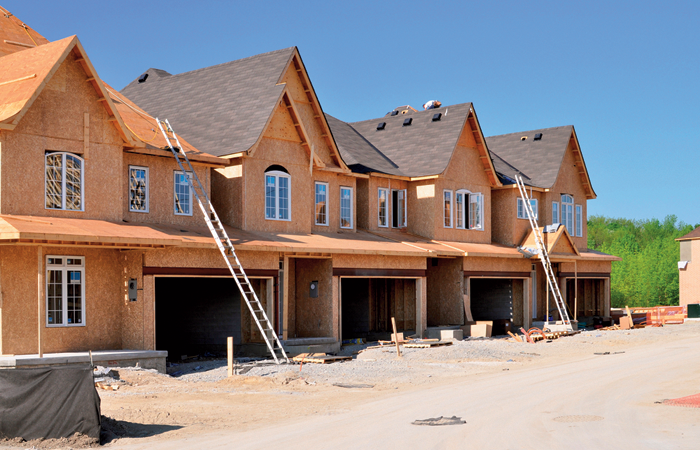
The UK’s largest housebuilder, Barratt Developments, has seen a significant fall in profits as rising interest rates and the end of help-to-buy dampens first-time buyer demand.
In its latest trading statement, Barratt reveals that demand from prospective homeowners fell by 49% in the year to June.
The company experienced a significant deterioration in demand during the second quarter and, whilst the position improved during the third quarter, reservations then slowed more than normal seasonal trends from mid-May to the end of June 2023.
Barratt said its estimated profits for the year to June would be around £880m a drop of 15% from the £1bn for the previous year.
Total home completions reduced by 3.9% in the full-year 2023 to 17,206 compared to 17,908 in 2022.
Last week, Mortgage Strategy reported on how the climate had changed for housebuilders. After breathing a sigh of relief as the surging mortgage rates seen in the wake of the mini-Budget eased, pressures were rising once again amid sticky UK inflation and the prospect of higher rates for longer.
Figures today from the Office for National Statistics reveals that UK construction work fell by 0.2% in May compared to the month before.
Within the new work category, new private housing activity fell 1.7%.
The survey cites anecdotal evidence from firms who report customer’s worries about the economy as a reason for the slowdown -much in line with Barratt’s statement.
UK housebuilders will also have been disheartened to read the news yesterday that Michael Gove’s Department for Levelling Up is to hand back £1.9bn to the Treasury originally meant to tackle England’s housing crisis after apparently struggling to find projects to spend it on.
Just Mortgages financial services director John Doughty can see no logic behind this and says it seems counterproductive in a challenging housing market to remove funding earmarked for new housing.
“It’s another perplexing decision following the move last year to scrap mandatory housebuilding targets. A change to voluntary targets removes the incentive for local councils to push ahead with housing plans.
“If the government does want to make home ownership a reality for more people, removing considerable funding – including £1.2bn allocated for Help to Buy is not the answer. This only exacerbates the ongoing supply challenges and makes it much harder for first-time buyers, who help to drive the entire market with their activity”.
He adds: “Just as critical as building new homes (including affordable ones) is increasing awareness and access to the low-deposit schemes available to house buyers. Instead of returning to the Treasury, this funding could have been targeted to the likes of Shared Ownership, Deposit Unlock and the First Homes scheme, which have all provided opportunities to first-time buyers and newly-single individuals following the changes and eventual departure of help to buy.”


